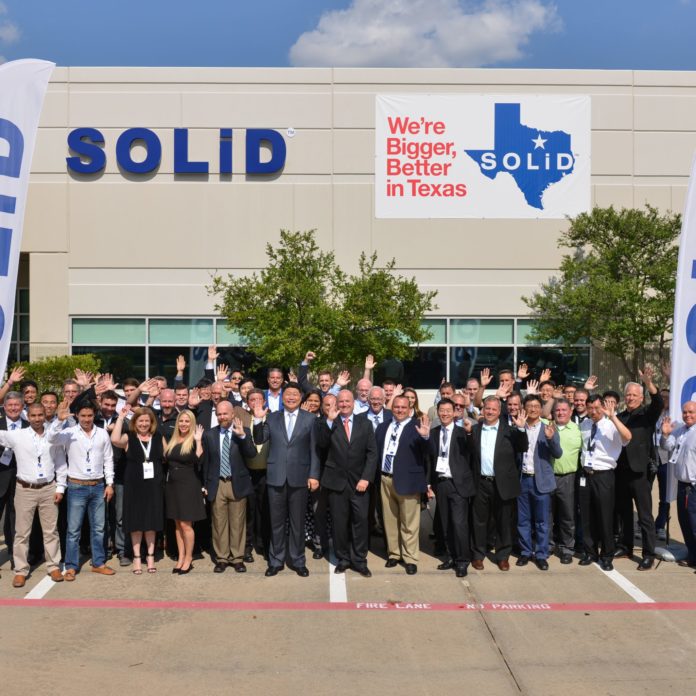New home is near one its biggest DAS installations
SOLiD Americas has moved its U.S. headquarters from Silicon Valley to Plano, Texas in a move that puts the distributed antenna vendor closer to telecom giants like AT&T and Ericsson, and to a deep bench of RF engineering talent in the Dallas area. The South Korean company is seeing more growth in North America than in Asia, and wants to increase research, assembly and training to the U.S.
“The fastest growing part of our business is the Americas,” said SOLiD CEO Dr. Seung Hee Lee. “This new facility will support that rapid growth around the world. The ability to innovate and to deliver that innovation faster are the key reasons we relocated to Texas.”
Ken Sandfeld, president of SOLiD Americas, said the new location is also ideal from a logistics perspective. Being in the central United States makes it easier for SOLiD to ship product to various parts of the country. The components of SOLiD’s systems are manufactured in South Korea, but the hardware is assembled in the United States. Sandfeld added that SOLiD is moving a significant portion of its research and development to Plano and said the new facility includes a dedicated equipment testing laboratory.
“Traditionally we have developed most of our equipment in South Korea, but now we are doing more of our research and development in Plano,” Sandfeld said.
Plano is also home to one of SOLiD’s biggest customers, another Asian company that chose the Dallas area for its U.S. headquarters. Toyota North America said it chose Plano after evaluating a number of cities based on proximity to international airports, access to talent, and quality of life.
Toyota campus relies on mobile
Once Toyota decided to locate in Plano, the company got busy designing its campus. Toyota knew cellular connectivity inside would be a challenge because it was designing a green building with thick walls and windows to assist with climate control. But unreliable cell signals were unacceptable to Toyota, because it wanted to support a collaborative work environment without giving its employees desk phones.
Toyota turned to SOLiD to design a multi-operator distributed antenna system for the company’s 100 acre, 7 building, 2 million square foot campus. In addition, Toyota wanted a separate system for public safety communications with first responders from Plano and nearby Frisco. Together, the 4-carrier DAS and the public safety system comprise one of SOLiD’s largest U.S. installations. RF Connect and Anixter partnered with SOLiD to install and test the network equipment.
According to Toyota, employees have no complaints about cellular service and are able to use their smartphones as a primary means of communication at work. The automaker said its public safety system has not yet been needed in an emergency, but test results are so strong that other companies are asking to use the system as a template for their own designs.

